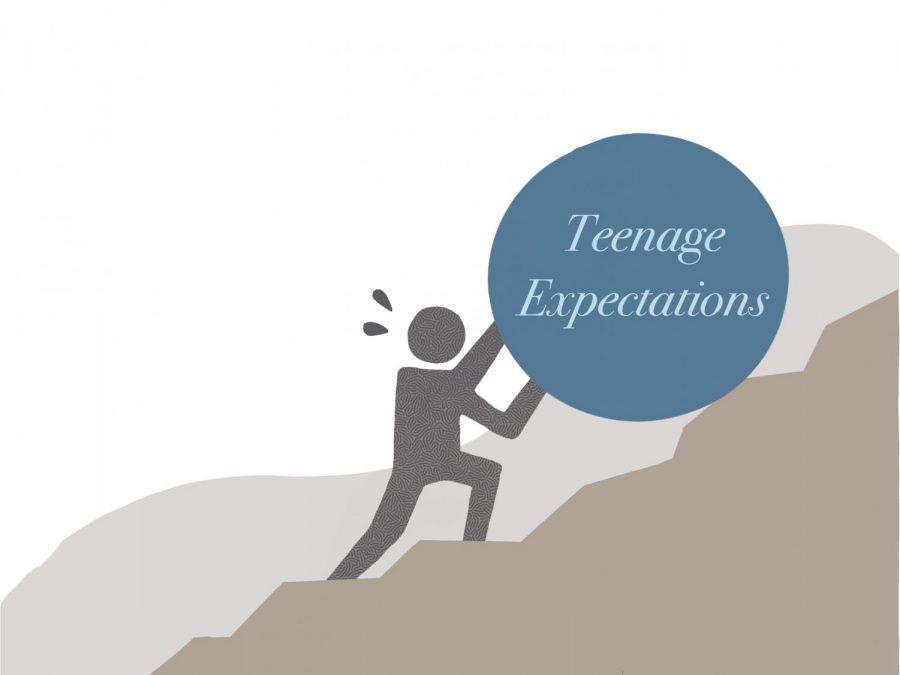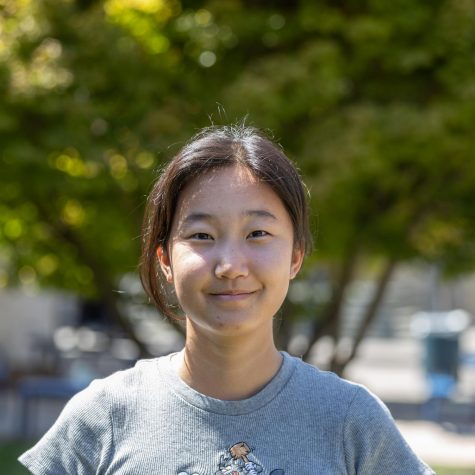Application expectations: Does the stress even lead to so-called “success”?
The competition of college applications is harmful, but we can shift our mindset to mitigate it.
I could not be more excited to wrap up my high school career. But as a junior preparing for college applications, my stress outweighs that enthusiasm. While I know I’ve worked hard to prepare for this next chapter in my life, societal pressures continuously remind me that maybe I haven’t worked hard enough.
I’ve been a good student my whole life. I’ve had faith that I would go far, that one day I would get into the college of my dreams.
My first mistake was believing those two are codependent.
Building the “perfect” resume has become the end–all be–all, but that standard of perfect is often far too draining and general — individuality should be the priority.
Academics are at the core of college applications, but a 4.0 alone just doesn’t cut it anymore. We’re under the impression that competitive colleges are also looking for a lengthy list of extracurricular activities, volunteer hours and leadership roles. But you also can’t blend in with every other just-as-qualified applicant.
These standards are raised due to competition becoming increasingly difficult. So here I am, reflecting on my high school experience, thinking I should’ve just studied harder for that test, or never quit my eight years of competitive gymnastics. I should’ve spent less time on my phone and more time saving the world, because that’s what all the kids are doing these days, right?
It’s a stressful mindset. And I’m not the only one.
As grateful as I am, there’s a high price to pay for living in the wonderful state of California. We are home to some of the most sought after public schools: the majestic UCs. They receive applicants from all over the United States and the world, and the higher out-of-state tuition those applicants pay have become economically vital. Especially during the pandemic, when universities are losing funding, this factor has made it harder for in-state applicants to get accepted.
This year especially, due to COVID-19, more students applied to top colleges in the 2020–2021 cycle. Harvard University’s number of applications were up roughly 42 percent from last year and their acceptance rate for Early Action was at an all-time low: 7.4 percent.
While there isn’t much we can do to “fix” the ever increasing competition, a change in mentality is crucial. Colleges are inconsistent — applicants often get accepted to more competitive colleges and declined from schools deemed more of a fit. We don’t always know what recruiters are looking for, but more importantly it shouldn’t matter. Passion is easily detectable in a student’s resume and essay, and we are all better off pursuing true areas of interests rather than excessive activities we think we are expected to do.
By no means am I encouraging less hard work and dedication from students, nor can I honestly argue that we shouldn’t care what college we go to. But I am encouraging a shift in attitude toward working hard in finding areas of interest, in working hard for yourself and not for others.
Today’s successful individuals came from a huge range of educational backgrounds, showing that where we go to college does not define our future. San Diego State University conducted a study showing that for most career paths, where someone got their education is inconsequential in their ability to find fulfilling work.
I don’t want to remember high school as the late-night breakdowns, but rather the friendships and memories made. We’re only teenagers once and at the end of the day, we have to remind ourselves that we shouldn’t want a college that doesn’t want us.






Ms. Duran (LAHS College & Career) | May 10, 2021 at 10:05 am
Beautifully written! Also, there is a college for everyone who wants to continue their education with 4,000+ in America alone. Also, community college gets a bad rap in mainstream media but Foothill College and DeAnza College are two of the best in the country. Also, the UC’s accept community college transfer students at a higher priority than high school seniors. Several pathways can lead to the same destination!
Keep up the great work and we will be announcing summer college support opportunities (1:1 meetings and group workshops) for the Class of 2022 later today!